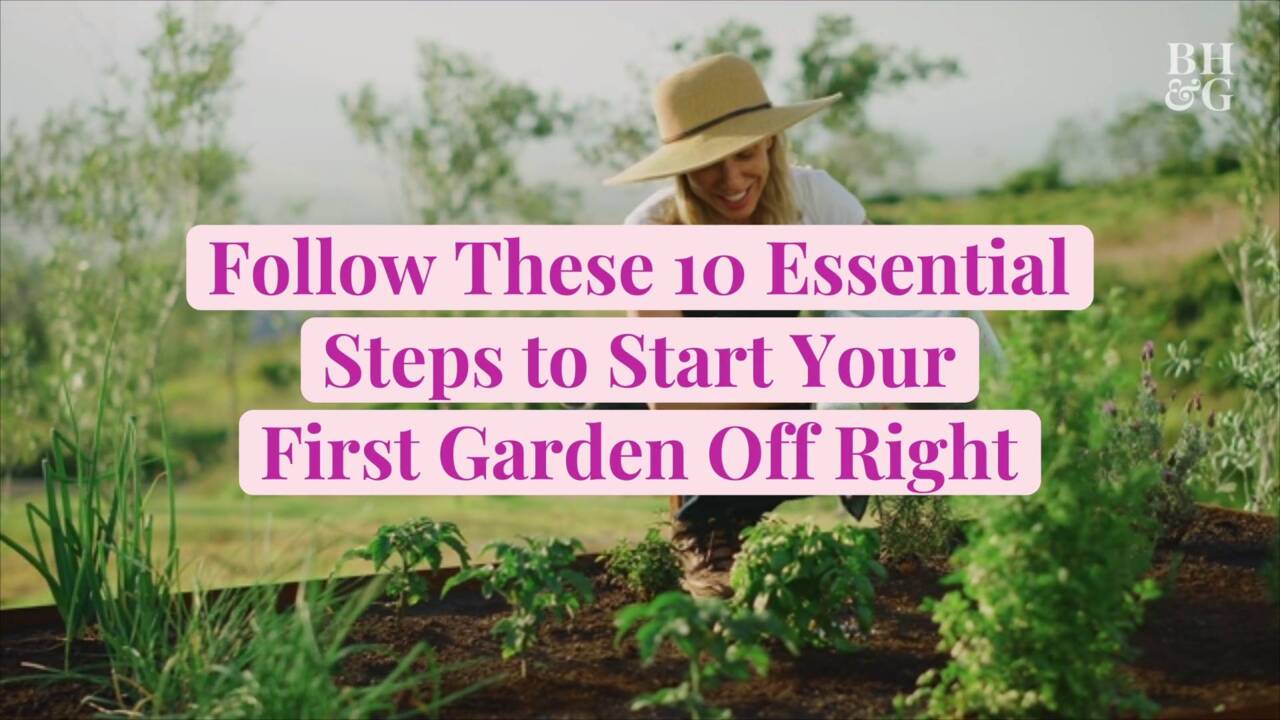
Charles Dowding has been an innovator in no-dig, organic soil management since 1983. This English horticulturist is a major contributor to the field. It's worth learning more about him. Dowding discusses both his methods and the advantages of organic soil in his book "How To Grow Anything in A Day".
His "No-dig” gardening method is based in organic principles and no dig gardening. Charles Dawson frequently uses this method in his garden to make it look stunning. The 'No dig' gardening technique encourages housekeeping. It includes the removal of damaged leaves and the reduction of pests. Since 2006, many gardeners have been using the "No-dig" method to create beautiful, healthy gardens. Because it is time-saving, reduces soil erosion and encourages succession planting, the 'No dig' method is a favorite among beginners.

The 'No-dig method' is a great option to create productive gardens. Charles Dowding's website has helpful tips as well as an active forum. He has three courses on the method and has a YouTube channel that gets over 36,000,000 views each month. In addition to his books, Dowding has a YouTube channel with several videos. His Youtube channel provides a wealth information about organic garden.
Charles Dowding, an innovative gardener who uses a no-dig method of gardening, is becoming more popular. His no dig techniques can help you save money and make delicious food. His books, "How to Grow Vegetables with No Landscaping", have sold more than 20,000 copies since their publication. It's clear why this method is a huge success.
Charles has never done a soil test. However, he believes that he can identify the best soil type for a plant. He can determine the amount of nutrients a soil requires by watching how plants grow. The soil's pH is crucial for the health of your garden's plants. But there are ways you can help them flourish.

Charles creates a garden that is no-dig and uses the 'No-dig’ garden method. He has been using this no-dig approach for more than thirty years, and is a huge advocate of the technique. He claims that no-dig gardening doesn’t require any digging. He believes that the soil needs time to repair and rebalance itself. A no-dig soil is healthier and easier to maintain.
Because it takes less work and requires less time, the No-dig gardening method is the best choice. In contrast, no-dig gardening does not require any weeding at all. Charles Downing's book, No-Dig Gardens: Understanding the Concept is Essential is why it is so important. Its six modules are packed with useful information and practical advice for anyone wanting to grow vegetables. They are extremely easy and anyone can do them, even someone with very little gardening experience.
FAQ
Do I have enough space to plant a vegetable or fruit garden in my backyard?
If you don't already have a vegetable garden, you might wonder whether you'll have enough room for one. The answer to that question is yes. A vegetable garden doesn't take up much space at all. It takes just a little planning. For example, you can build raised beds just 6 inches high. Or, you could use containers instead of raised beds. Either way, you'll still get plenty of produce.
How much space do vegetable gardens need?
It is best to remember that 1/2 pound of seed will be required for every square foot. You will need 100 pounds of seed if your area is 10 feet by 10 foot (3 meters by 3 metres).
Do I need to buy special equipment to grow vegetables?
It's not true. All you need is a shovel, trowel, watering can, and maybe a rake.
How long can an indoor plant be kept alive?
Indoor plants can last for many years. It is vital to repot your plants every few months in order to encourage new growth. Repotting is easy; simply remove the old soil and add fresh compost.
What is the most important thing to do before you start a new garden?
Preparing the soil is the most important step in starting a garden. This includes adding organic material such as composted horse manure, grass clippings or leaves, straw and the like, which provides plant nutrients. Next, plant the seeds or seedlings in the holes. Then, water well.
Statistics
- 80% of residents spent a lifetime as large-scale farmers (or working on farms) using many chemicals believed to be cancerous today. (acountrygirlslife.com)
- Most tomatoes and peppers will take 6-8 weeks to reach transplant size so plan according to your climate! - ufseeds.com
- As the price of fruit and vegetables is expected to rise by 8% after Brexit, the idea of growing your own is now better than ever. (countryliving.com)
- It will likely be ready if a seedling has between 3 and 4 true leaves. (gilmour.com)
External Links
How To
How to Grow Tomatoes
Tomatoes have become a very popular vegetable. They are easy-to-grow and have many benefits.
Tomatoes require full sun and rich soil.
Tomato plants love temperatures above 60°F.
Tomatoes require a lot of air circulation. Use cages or trellises to improve airflow.
Tomatoes need regular irrigation. If possible, use drip irrigation.
Tomatoes do not like heat. Maintain soil temperatures below 80°F.
Tomato plants thrive on plenty of nitrogen-rich fertilizer. Apply 10 pounds of 15-15-10 fertilizer every two weeks.
Tomatoes need approximately 1 inch water per week. You can either apply directly to the leaf or use a drip irrigation system.
Tomatoes may be susceptible to diseases such as bacterial wilt and blossom end rot. You can prevent these diseases by making sure the soil is properly drained, and applying fungicides.
Whiteflies and aphids can infest tomatoes. Spray insecticidal shampoo on the undersides.
Tomatoes are delicious and versatile. Tomato sauce, salsa, relish, pickles and ketchup are just a few of the many uses for tomatoes.
Growing your own tomatoes can be a fun experience.